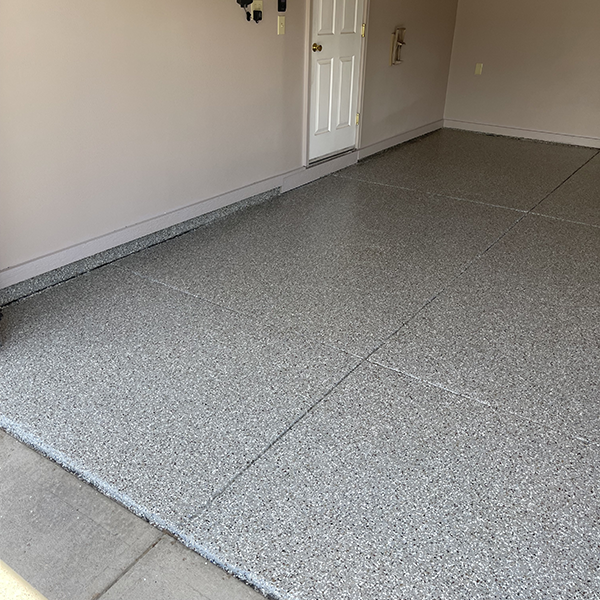Garage floors are often overlooked and neglected. It’s surprising, considering that it’s one of the busiest and most used parts of our homes. Cars driving in and out, bikes, tools constantly moving around, spills, and stains – all these can take a toll on your garage floor’s longevity. Fortunately, there are ways to protect and extend its life, such as applying a garage floor coating. One of the popular and recommended types of coatings is polyaspartic. In this blog, we’ll dive deep into the science behind polyaspartic garage floor coating and why it’s superior to epoxy.

Polyaspartic is an advanced type of polyurea coating that has been in the market since the early 2000s. It’s created by a chemical reaction between aliphatic polyisocyanate and a polyaspartic ester. The result of this reaction is a flexible and durable coating that can withstand extreme temperatures, UV light, and chemical exposure.
Compared to epoxy, polyaspartic garage floor coatings have distinct advantages. First and foremost, polyaspartic cures faster. It only takes a few hours to dry and become hard and durable, while epoxy takes several days. This quick-drying feature translates to less disruption to your daily routine and faster completion of the project.
The science behind polyaspartic also explains its superiority in terms of durability and resilience. Polyaspartic molecules are highly cross-linked, which makes them resistant to impacts, scratches, and abrasions. It’s also highly flexible, so it can withstand floor movements and temperature fluctuations without cracking or peeling. These properties make polyaspartic ideal for garage floors that often experience heavy traffic and tough conditions.
Another advantage of polyaspartic over epoxy is its UV stability. Epoxy coatings tend to darken in color and fade when exposed to sunlight, while polyaspartic remains clear and transparent. This feature is crucial if you want to maintain the garage floor’s aesthetic appeal and avoid having a yellowed or discolored surface.
In terms of chemical resistance, polyaspartic is also superior to epoxy. Polyaspartic’s molecular structure makes it less porous, so stains, oils, and chemicals cannot penetrate or etch the surface. This resistance makes it easy to clean and maintain in the long run, saving you time and money.
Parker Colorado Polyaspartic Garage Floor Coating contractors offer a game-changer when it comes to protecting and extending the life of your garage floor. Its advanced molecular structure, fast curing time, durability, UV stability, and chemical resistance make it stand out from epoxy and other types of coatings. Investing in polyaspartic for your garage floor is a smart choice that pays off in the long run. So, what are you waiting for? Contact your trusted polyaspartic coating provider now and enjoy the benefits of a high-quality and long-lasting garage floor.